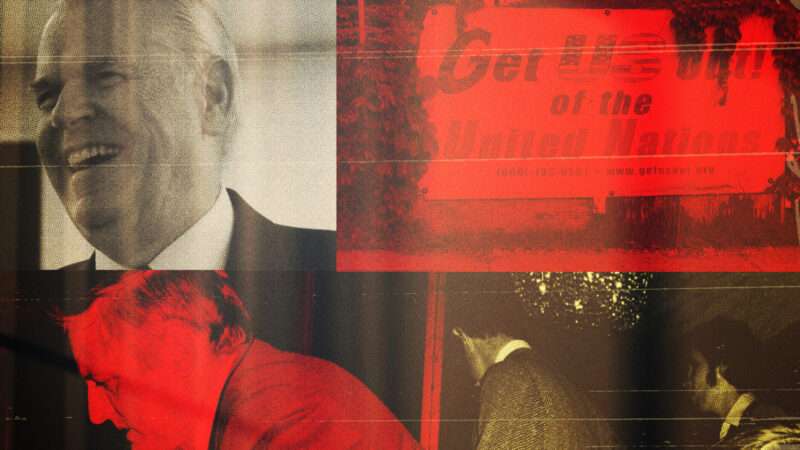
Established in 1958 and peaking in influence and membership in the mid-1960s, the staunchly anti-communist John Birch Society quickly became a powerful force in conservative politics, with leading figures such as Barry Goldwater and Ronald Reagan making appeals to its members without fully endorsing its paranoid vision of a country secretly controlled by Soviet agents. Indeed, the society's founder, retired candy magnate Robert Welch, denounced President Dwight Eisenhower as a "conscious, dedicated agent of the Communist Conspiracy."
The society also became a running punchline during its heyday, with Bob Dylan recording a song called "Talkin' John Birch Paranoid Blues" and the society's fixation on water fluoridation and vaccines finding its way into a character in Stanley Kubrick's Dr. Strangelove who is obsessed with protecting "our precious bodily fluids."
In the new book Birchers: How the John Birch Society Radicalized the American Right, George Washington University's Matt Dallek puts the rise and fall of the Birch Society—which still exists and is based in Appleton, Wisconsin—into a larger Cold War context and argues that its influence on contemporary conservative politics remains as strong as it is unacknowledged.
"More than the most hard-line Goldwater, Nixon, or Reagan Republicans," he writes, "the Birch Society…bequeathed to subsequent generations an extreme antigovernment zeal and rhetorically violent appeal" that remains part and parcel of Donald Trump's MAGA movement. The Birchers' focus on ending the Federal Reserve; getting the United States out of the United Nations, NATO, and the World Trade Organization; and anti-interventionist foreign policy parallels many of the key elements of the political program articulated by libertarian Republican Ron Paul, who keynoted the group's 50th Anniversary Celebration. And the society's past antagonism toward integration and continuing attacks on feminism and gay rights—and emphasis on traditional Christian values and family structures—is widespread among contemporary conservatives.
Dallek's book is not a sneering attack on a backward-looking group but a deep dive into the context and personalities that made it so powerful, if only for a short period of time. He recaptures a sense of just how radical post-war America was, both on the right and the left, and how "conspiracism"—the idea that things are never simply what they appear to be but are really the result of hidden elite machinations—continues to inform how we all think about politics.
The post Matt Dallek: The John Birch Society's Deep Influence on Trump's GOP appeared first on Reason.com.






